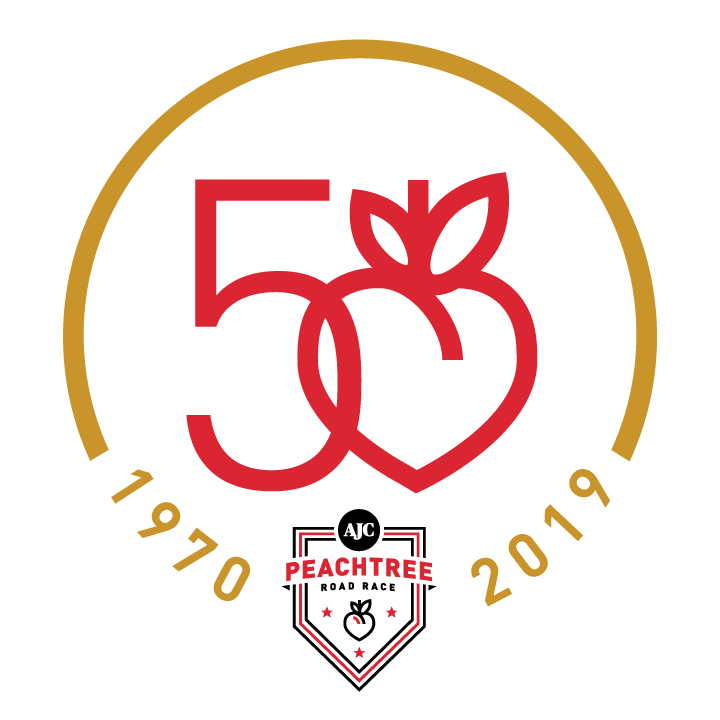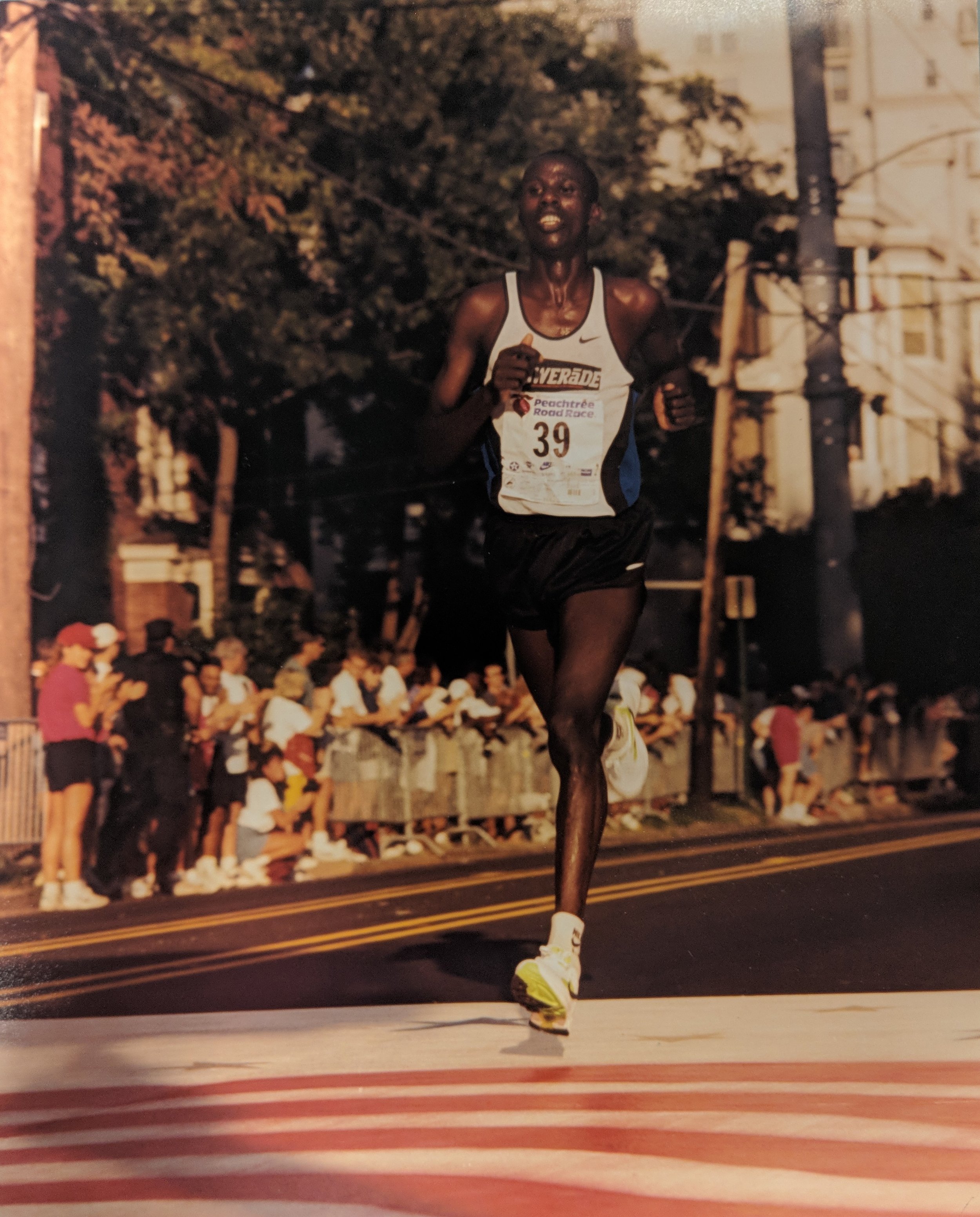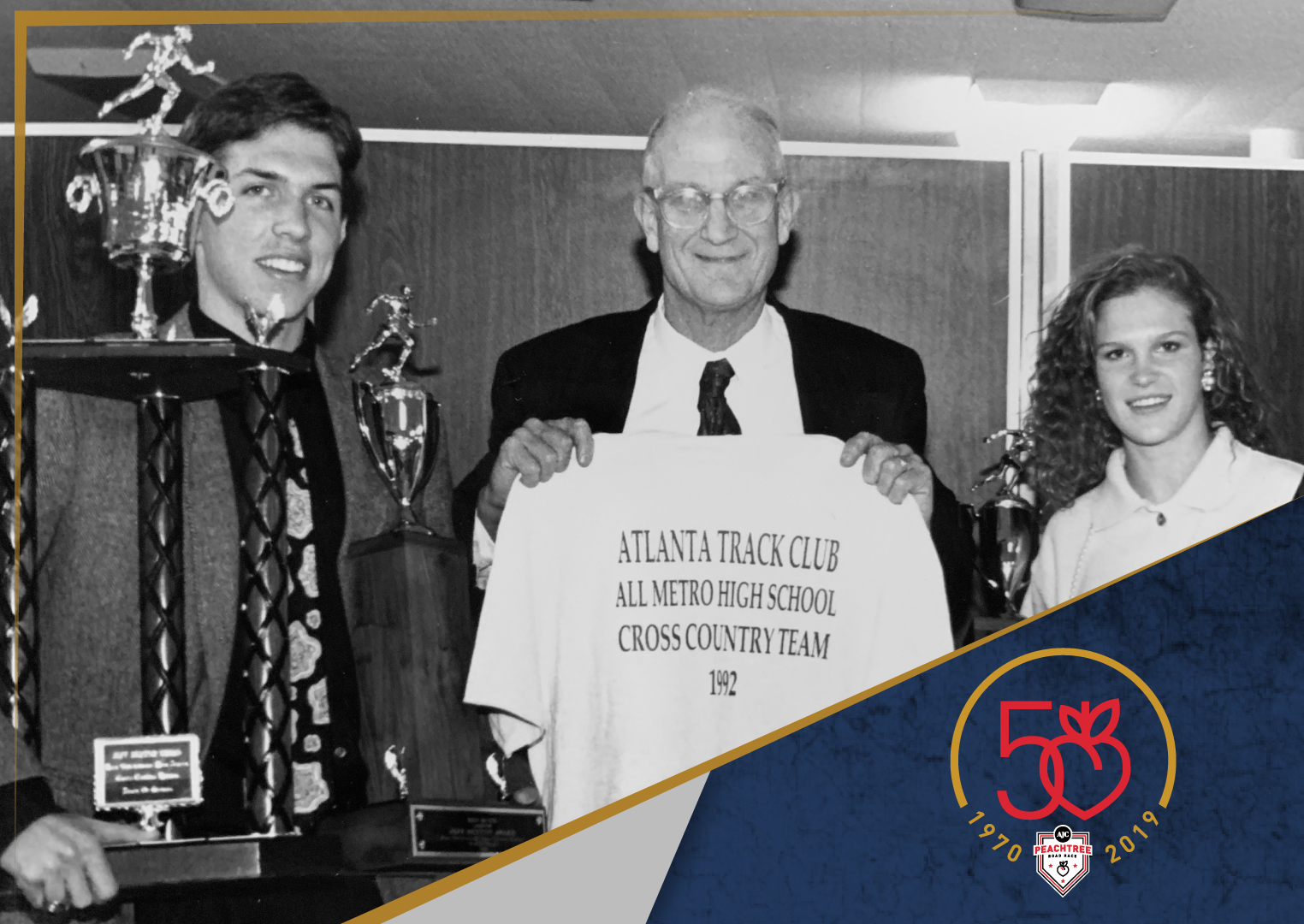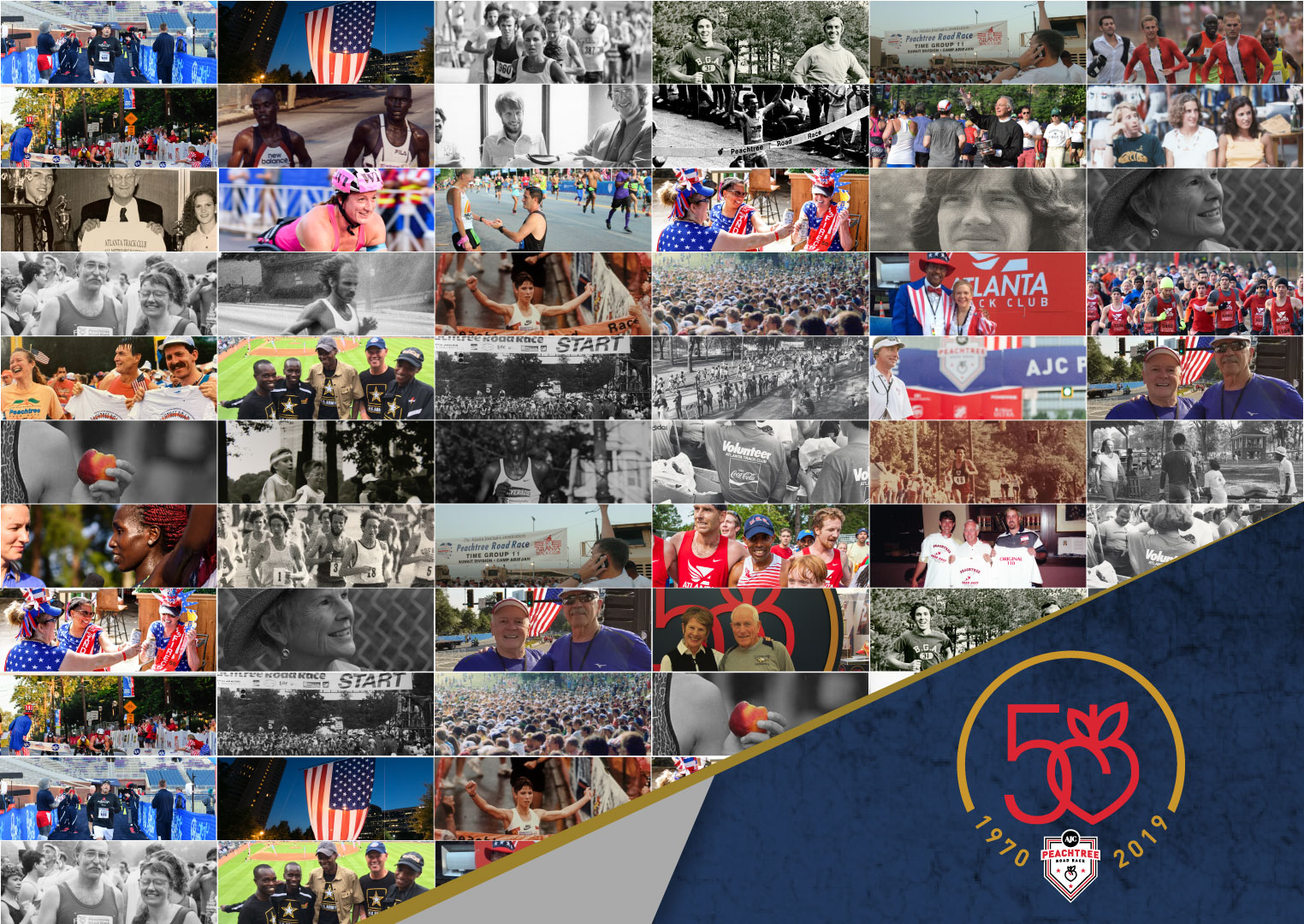The Record Books

How strong are the event records of the AJC Peachtree Road Race?
Strong enough that the open women’s record has stood for 16 years, and the men’s for 22. Strong enough that Lornah Kiplagat’s time of 30:32 is still the third-fastest 10K by a woman ever recorded in the U.S. And strong enough that Joseph Kimani’s 27:04 – set in 1996 – remains the fastest 10K ever run on U.S. soil and fourth-fastest in the world.
This week, we dive into the history of the Peachtree event records and take a look at the man and woman who hold those marks.
Setting the first record at Peachtree was, of course, Jeff Galloway – the first man to break the tape of the first AJC Peachtree Road Race, winning the 1970 race in 32:22 on a course many claim was much tougher than the current route. But his record stood for only a year, as Bill Herron was able to take almost a minute and a half off in 1971. In 1975, Ed Leddy became the first man to dip under 30 minutes when he ran 29:52, and a year later Don Kardong – who later that month would go on to finish fourth in the marathon in the 1976 Summer Olympics – cut the record to 29:14.
Craig Virgin winning in 1981
Mike Roche took a small bite out of that in 1978, but it was Craig Virgin who shattered the mark in 1979 (28:30) on an altered and somewhat more-forgiving course and then again in 1981 when he slashed it even further to 28:03. That time still stands as the fastest time ever run by an American on the course. and would hold as the event record until 1985, when Michael Musyoki of Kenya and John Doherty of Ireland broke it in consecutive years. Doherty’s mark held for a decade, until Joseph Kimani demolished it with a staggering time of 27:04 in 1996.
The AJC Peachtree Road Race that year was a unique opportunity for some of the world’s finest distance runners to get a taste of competing in Atlanta just weeks ahead of its Olympic Marathon. With some of the top names in road racing heading to the Peachtree that year, participants knew they were in for a competitive race. What they didn’t expect was that the 39th seed would absolutely blow them all away.
Kimani didn’t even make the Kenyan Olympic team, but had won three straight races heading into the Peachtree, setting a world record of 27:20 in one of them. Even with favorable conditions – unseasonably cool and with low humidity – no one could have predicted what happened that morning.
Joseph Kimani's record-breaking win
After Kimani opened up with a relatively slow 4:34 first mile, he would go on to average 4:14 per mile the rest of the way en route to winning by more than 40 seconds. Not only was his 27:04 the fastest Peachtree of all time, it was the fastest 10K ever, 16 seconds faster than his own world record. (Because of its point-to-point nature with a net elevation drop, the AJC Peachtree Road Race course isn’t eligible for official records.) It was 52 seconds faster than Doherty’s previous event record, and is still 18 seconds faster than the second-quickest Peachtree ever run, by Sammy Kitwara in 2009.
As AJC Staff Writer Jack Wilkinson reported the morning after the race, Kimani was part of “one of the most remarkable days in American road racing history.” John Curtin, the elite field coordinator for Atlanta Track Club at the time, called it “the greatest road race ever.” The second- and third-place finishers, Simon Rono (27:48) and Peter Githuka (27:53), also ran under the previous record.
Kimani’s 1996 Peachtree was the highlight of a career that saw him dominate the roads in the late 1990s. Considered among the best road racers of all time, Kimani died in 2012 of complications from pneumonia. He was 40 years old.
Over the first six years on the women’s side, Gayle Barron lowered her inaugural-year record of 49:13 four times, dropping her time by more than 11 minutes as she won five of the first six Peachtrees. Peg Neppel was the first to take that title away from Barron with a 36-flat in 1977, but Mary Decker truly shattered that mark and ushered in a new level of speed in the women’s race at the Peachtree with a 33:52 in 1978. Although it would be another decade before the women’s 10K was added to the Olympics, Decker’s time was so good that it would still have made the top 10 in 2018.
Through 1984, that mark was lowered four more times, slowly chipping into the mid-32s. But in 1985, Grete Waitz, the Norwegian who was the first woman to finish the marathon in under 2:30, ran 32:02. Waitz, who won the Peachtree four times, held the event record until 1992. That year, American Francie Larrieu Smith dropped the record to 31:49, which stood until 1996 when Hellen Kimaiyo-Kipkosgei set a new mark in 30:52. In that same race, 1996 Olympic marathoner Anne-Marie Lauck ran 31:23, which still stands as the fastest Peachtree time by an American woman and still makes Lauck the #3 all-time U.S. performer at 10K, after only Shalane Flanagan and Lynn Jennings.
Then the great Lornah Kiplagat rewrote the record books in 2002 when she ran a stunning 30:32, still the 12th-fastest 10K ever run.
Lornah Kiplagat's 2002 victory
On a day of remembrance as the first July 4 after 9/11, Kiplagat was able to secure her third-straight Peachtree crown and finally achieve an event record after tying it in 2000. Her time of 30:32 put her more than 40 seconds ahead of Constantina Dita in second place, and was just four seconds off the 10K world record at the time.
When compared to her two previous victories, Kiplagat told the AJC that day, “this was the perfect one.”
Kiplagat would go on to win twice more, in 2005 and 2006, representing her new home country of the Netherlands; her five victories still stand as the most by any woman at Peachtree.
A three-time Olympian and the 2007 IAAF World Cross Country Champion, Kiplagat set world records at four distances and won three straight World Road Running Championship titles, from 2006 to 2008. She became a vocal advocate for Kenya’s female runners and founded the famous High Altitude Training Center in Iten, Kenya, where many of the world’s top distance athletes go to focus on preparing for their major races but which is also open to runners of all abilities. In 2008, she was given the Abebe Bikila Award by the NYRR for her contributions to the sport.










